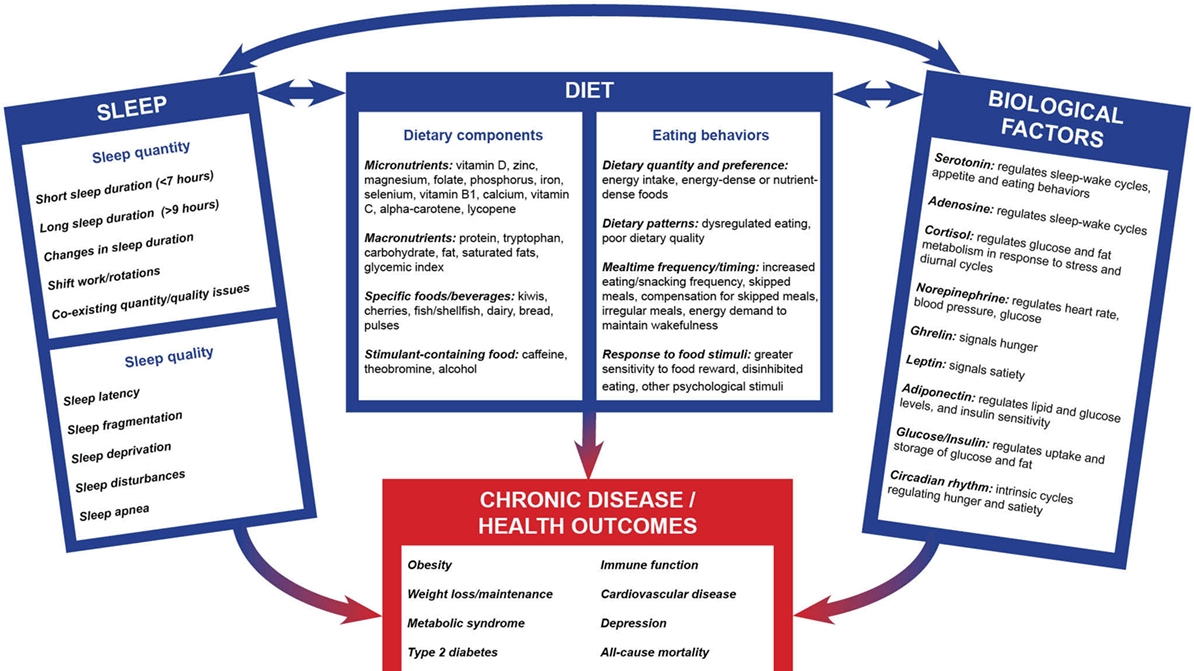
In recent times, research has brought to light interesting correlations between sleep deprivation and dietary choices. Specifically, a new study found that individuals suffering from sleep deprivation tend to consume more unhealthy snacks and make poorer food choices. This discovery underscores the significant role of sleep in shaping our dietary habits and maintaining overall health. With potential implications for public health initiatives, this insight could inform interventions targeting sleep and nutrition.
The Consequences of Sleep Deprivation on Dietary Choices
The impact of sleep deprivation on dietary choices is far-reaching. A lack of sleep can lead to unhealthy eating habits and contribute significantly to weight gain. It also plays a significant role in food cravings, with sleep-deprived individuals tending to gravitate towards high-calorie, high-carb foods. Hormonal imbalances, another consequence of inadequate sleep, also affect dietary choices. A particular concern is the imbalance between leptin and ghrelin, hormones that regulate hunger and satiety.
Vegetarianism and Sleep Quality
Interestingly, a study found that vegetarians have a lower risk of insomnia compared to non-vegetarians. This suggests that plant-based diets may have potential additional sleep benefits. The study also noted sex-specific associations between adherence to plant-based diets and insomnia risk, providing a new avenue for research into dietary modifications for improving sleep quality.
Sleep Deprivation and Athletic Performance
Sleep is a crucial factor, not just for overall health and well-being, but specifically for athletes. Adequate sleep aids in memory retention, cognitive processing, and mood regulation. Conversely, lack of sleep can lead to reduced reaction times, poor decision making, and heightened risk for medical concerns. Elite athletes are advised to get at least nine hours of sleep nightly, with additional sleep recommended before events such as traveling to competitions, before a heavy competition, and during times of illness or injury.
Nutrition, Sleep, and Injury Risk in Adolescent Athletes
Adolescent athletes, in particular, should pay careful attention to the interplay between sleep and nutrition. Sleep is vital for recovery, growth, and immunity. Inadequate sleep can negatively impact athletic performance, increase injury risk, and affect mental well-being. The increased sleep needs of athletes compared to the general population, particularly during adolescence, make this a critical area for attention and intervention.
The Impact of Ultra Processed Food (UPF) on Sleep
Recent research also highlights the relationship between Ultra Processed Food (UPF) consumption and sleep disturbances. A study conducted on Brazilian adults found that UPF consumption is linked with small but statistically significant sleep disturbances. Furthermore, salty UPF showed a more significant effect on sleep disorders than sweet UPF. With the rise of UPF in diets worldwide, these findings underscore the need for a broader conversation about food quality alongside quantity in the context of sleep health.
Conclusion: The Vital Role of Sleep in Health and Nutrition
With mounting evidence pointing towards the significant impact of sleep deprivation on dietary choices and health outcomes, it’s clear that sleep should be a central focus in discussions about health and nutrition. Whether it’s the potential sleep benefits of plant-based diets, the specific sleep needs of athletes, or the impact of UPF on sleep quality, the interplay between sleep and diet is a critical area of research. As we continue to unravel the complex relationship between sleep and nutrition, these insights will be invaluable in shaping public health initiatives and interventions.
